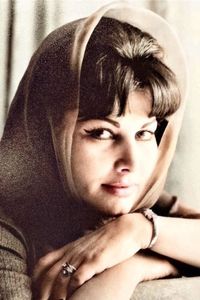Irene Zazians, a celebrated Iranian-Armenian actress, left an indelible mark on the world of cinema and television, her remarkable career spanning many decades. Born on August 20, 1927, Irene Zazians was a talented actress who had the privilege of collaborating with some of the most esteemed Iranian new wave directors before and after the pivotal 1979 revolution, a testament to her enduring impact on the industry.
Irene's professional journey has been marked by her collaborations with a diverse array of esteemed directors, a testament to her versatility and adaptability in the cinematic world. Among the notable filmmakers she has worked with are the accomplished Samuel Khachikian, the visionary Amir Naderi, the innovative Nosrat Karimi, the talented Masoud Kimiyayi, and the skilled Alireza Davood Nejad.
Her impressive filmography is a reflection of her dedication to her craft, and features two notable films that were released following the revolution. One such film is "The Red Line", masterfully directed by Masoud Kimiyayi, a cinematic achievement that unfortunately fell victim to censorship. Another notable work is "The Reward", directed by Alireza Davood Nejad, a film that, like "The Red Line", was met with a ban, depriving audiences of the opportunity to experience its artistic merit.
Irene's impressive repertoire extends far beyond the realm of film, as she has also made notable appearances in a multitude of television series, thereby demonstrating her remarkable versatility as a performer. Among her most remarkable roles was the portrayal of Mahde Olya, the mother of Nasereddin Shah, in the 1976 television series "Soltan-e Sahebgheran", a production expertly directed by the renowned Ali Hatami.
Following the Iranian revolution, a significant turning point in her life, Irene was prohibited from engaging in any artistic pursuits, a restriction that prompted her to redirect her focus and acquire new skills as a beautician in Germany, a country that would provide her with a temporary refuge and a chance to reorient her professional trajectory.
Years later, in 1986, Irene made the bold decision to return to her homeland, Iran, during a particularly tumultuous period in the country's history, namely the Iran-Iraq war, a conflict that would have a profound impact on the nation and its people.
In the years that followed, Irene's involvement in the film industry gradually came to a close, with her final cinematic appearance being in the 2008 film "Shirin", a critically acclaimed production directed by the renowned Iranian filmmaker, Abbas Kiarostami.
Irene, a remarkable individual, met her untimely demise on July 28, 2012, in Tehran, due to the devastating effects of lung cancer.
Throughout her life, Irene encountered numerous obstacles, yet she persevered and left an indelible mark on the Iranian film and television industry.
Her remarkable achievements and contributions will undoubtedly continue to be cherished and honored, serving as a testament to her remarkable legacy.























